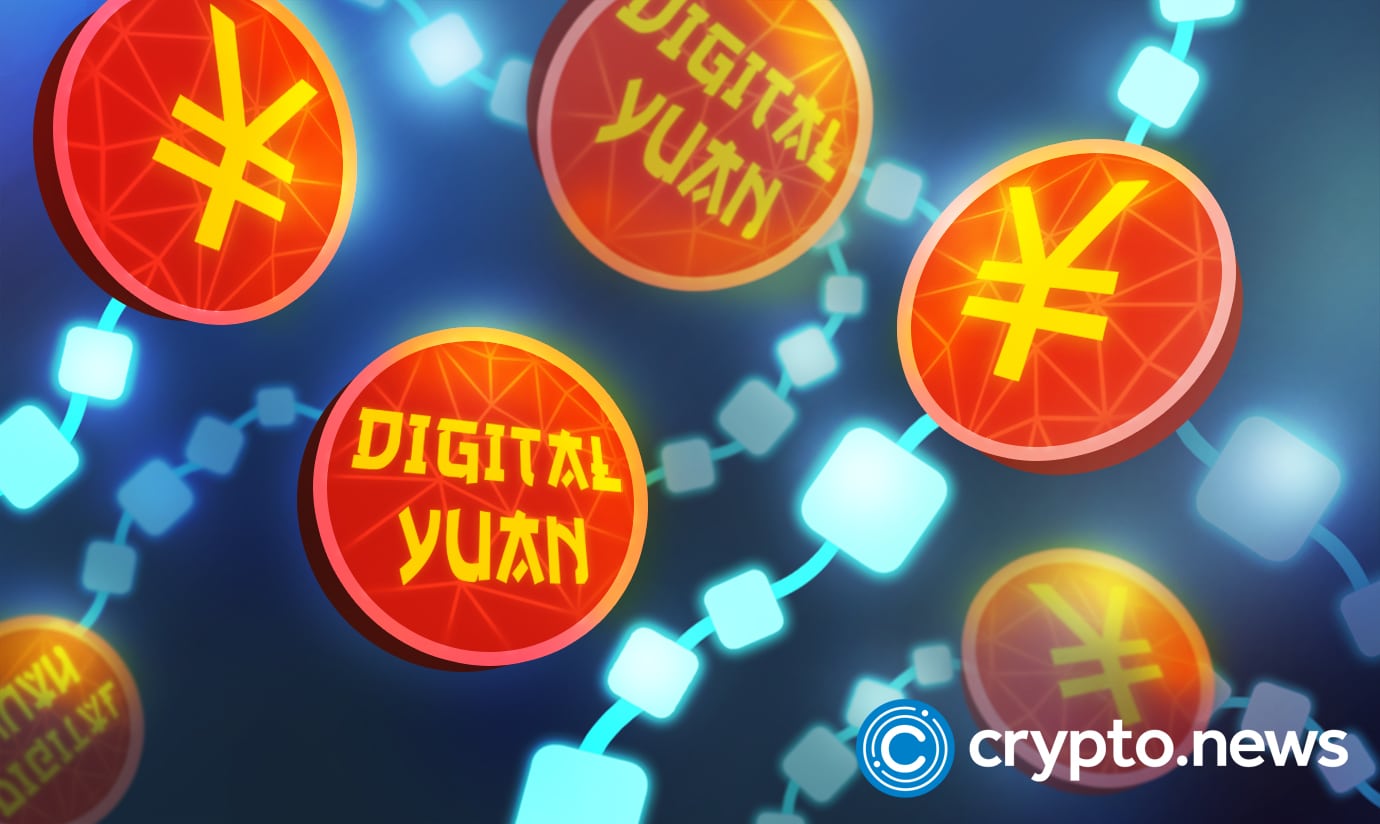China Central Bank Queries Smart Contracts Functionality in CBDCs

On September 1, 2022, the 2022 China International Fair for Trade in Services took place alongside the 2022 China International Finance Annual Forum. At the conference, Changchun Mu, the head of the People’s Bank of China’s (PBOC) Digital Currency Institute, presented a keynote address on e-CNY and smart contracts.
China and CBDCs
According to Changchun Mu, smart contracts have enormous potential to benefit the virtual economy by lowering costs, boosting efficiency, and encouraging the growth and innovation of services. The various applications for e-CNY smart contracts can reduce the expense of economic activity implementation, enhance the corporate environment, and accelerate the growth of the virtual economy.
Federal subsidies, retail marketing, and prepaid investment management are three industries where E-CNY smart contracts have been effectively used. The adoption will proceed more quickly and on a broader scale, advancing the core platform and associated institutional frameworks.
It’s Connection to the ‘White Paper.’
The action is consistent with the Institution’s whitepaper from last year, which stated that ‘deploying smart contracts that don’t degrade its monetary capabilities’ will give the e-CNY programmability.
The traceable self-performing contracts known as ‘smart contracts,’ frequently employed in blockchain and distributed environments, allow for complicated use cases such as conditional transactions and assured payouts. The PBOC stated last year that E-CNY smart contracts might ‘enable innovation in business models.’
According to Mu, a competent staff of smart contract templates and systems must be in place because the ‘guaranteed enforcement’ character of smart contracts poses concerns to the sustainability of the financial and economic sector.
“Before they are turned into templates and models, smart contracts, in this sense, have to go through conformity assessments and testing,”
Mu said, noting that the PBOC is striving to create a platform to evaluate and certify smart contract models.
According to Mu, using e-CNY smart contracts might efficiently lower the costs of business growth and be applied in various situations.
Chinese support for e-CNY is massive.
According to reports in local news outlets in August, the Bank of China, one of the biggest state-owned financial institutions in the nation, began supporting e-CNY using smart contracts for after-school educational programmes in Chengdu, the regional capital of southwestern China’s Sichuan province, last month.
The program’s smart contract parameters would immediately reimburse the fees if pupils missed individual sessions after parents pre-paid for classes using the e-CNY. If a school’s bank accounts are ever stopped for legal reasons, that could prevent refund complications.
In October 2020, the PBOC began testing the e-CNY in Shenzhen, and since then, it has broadened the testing to at least 23 cities and provinces.
Tech behemoths in China are adopting digital yuan transactions as well. At the ‘618’ shopping festival in June, the ecommerce platform JD.com reported 400 million yuan (US$60 million) in digital yuan revenues or around 0.1% of the entire event’s revenues.
Public transportation and city services like metro, buses, trains, toll booths on the highway, taxing, and social insurance are now included in the utilisation of the electronic yuan.
















